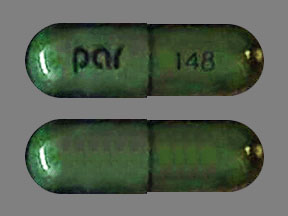
Dexlansoprazole Coupons & Savings Card – Discount Prices from $81.62
Generic for: Dexilant
Dexlansoprazole is a prescription medicine designed to treat conditions caused by excess stomach acid, such as acid reflux, gastroesophageal reflux disease (GERD), and erosive esophagitis. As a proton pump inhibitor, dexlansoprazole works by blocking the production of acid in the stomach, which helps relieve symptoms like heartburn, difficulty swallowing, and cough. By reducing acid levels, it promotes healing of acid-related damage to the lining of the stomach and esophagus, helps prevent ulcers, and may reduce the risk of esophageal cancer. Dexlansoprazole offers primary benefits including symptom relief and protection against further acid damage. It can be used in adults and in children ages 12 years and older, but it is not recommended for children under the age of 2 due to the potential for serious side effects.
Our coupons are free to use. Before paying, show the pharmacist your Dexlansoprazole savings card to get your free discount. Use our filters below to edit the prescription box to match your needs. The Dexlansoprazole prices will update based on your prescription needs. Above our Dexlansoprazole coupons, you can change your location to see pharmacy prices and costs in other areas. We're here to help you buy Dexlansoprazole at the lowest price with our prescription discount card.
My prescription
Edit
60MG, Dexlansoprazole (30 Capsule Delayed Releases)
Select pharmacy

CVS
$85.16
COUPON PRICE
Walgreens
$81.62
COUPON PRICE
Albertsons
$144.98
COUPON PRICE
Walmart
$213.13
COUPON PRICEDexlansoprazole savings card
Show this card to your pharmacist
Walgreens
$81.62
BIN
ID
PCN
GRP
011867
LHB29EA0A7
HT
LABH001
Powered by
Dexlansoprazole is a prescription medicine designed to treat conditions caused by excess stomach acid, such as acid reflux, gastroesophageal reflux disease (GERD), and erosive esophagitis. As a proton pump inhibitor, dexlansoprazole works by blocking the production of acid in the stomach, which helps relieve symptoms like heartburn, difficulty swallowing, and cough. By reducing acid levels, it promotes healing of acid-related damage to the lining of the stomach and esophagus, helps prevent ulcers, and may reduce the risk of esophageal cancer. Dexlansoprazole offers primary benefits including symptom relief and protection against further acid damage. It can be used in adults and in children ages 12 years and older, but it is not recommended for children under the age of 2 due to the potential for serious side effects.
Our coupons are free to use. Before paying, show the pharmacist your Dexlansoprazole savings card to get your free discount. Use our filters below to edit the prescription box to match your needs. The Dexlansoprazole prices will update based on your prescription needs. Above our Dexlansoprazole coupons, you can change your location to see pharmacy prices and costs in other areas. We're here to help you buy Dexlansoprazole at the lowest price with our prescription discount card.
More prescriptions for heartburn
coupons from$4.48Save 88%
coupons from$4.48Save 88%
coupons from$26.65Save 54%
coupons from$14.17Save 82%
coupons from$687.59Save 21%
coupons from$24.17Save 39%
coupons from$14.17Save 82%
coupons from$20.77Save 58%
More prescriptions for heartburn
Pepcid Ac Maximum Strength Save 88%coupons from $4.48
Pepcid Save 88%coupons from $4.48
Eq Esomeprazole Magnesium Save 54%coupons from $26.65
Zantac 360 Save 82%coupons from $14.17
Voquezna Save 21%coupons from $687.59
Nexium Save 39%coupons from $24.17
Famotidine Orig St Save 82%coupons from $14.17
Eq Acid Reducer Save 58%coupons from $20.77
Dexlansoprazole dosage forms
Use our Dexlansoprazole 30MG coupon with prices from $85.16 for 30 Capsule Delayed Releases. You can also use our Dexlansoprazole 30MG coupon with prices from $226.89 for 90 Capsule Delayed Releases. We have a Dexlansoprazole 60MG coupon with prices from $85.16 for 30 Capsule Delayed Releases. You can use our Dexlansoprazole 60MG coupon with prices from $226.89 for 90 Capsule Delayed Releases.
Dosage Quantity Price from Per unit 30MG 30 Capsule Delayed Releases $85.16 $2.84 30MG 90 Capsule Delayed Releases $226.89 $2.52 60MG 30 Capsule Delayed Releases $85.16 $2.84 60MG 90 Capsule Delayed Releases $226.89 $2.52
| Dosage | Quantity | Price from | Per unit |
|---|---|---|---|
| 30MG | 30 Capsule Delayed Releases | $85.16 | $2.84 |
| 30MG | 90 Capsule Delayed Releases | $226.89 | $2.52 |
| 60MG | 30 Capsule Delayed Releases | $85.16 | $2.84 |
| 60MG | 90 Capsule Delayed Releases | $226.89 | $2.52 |
